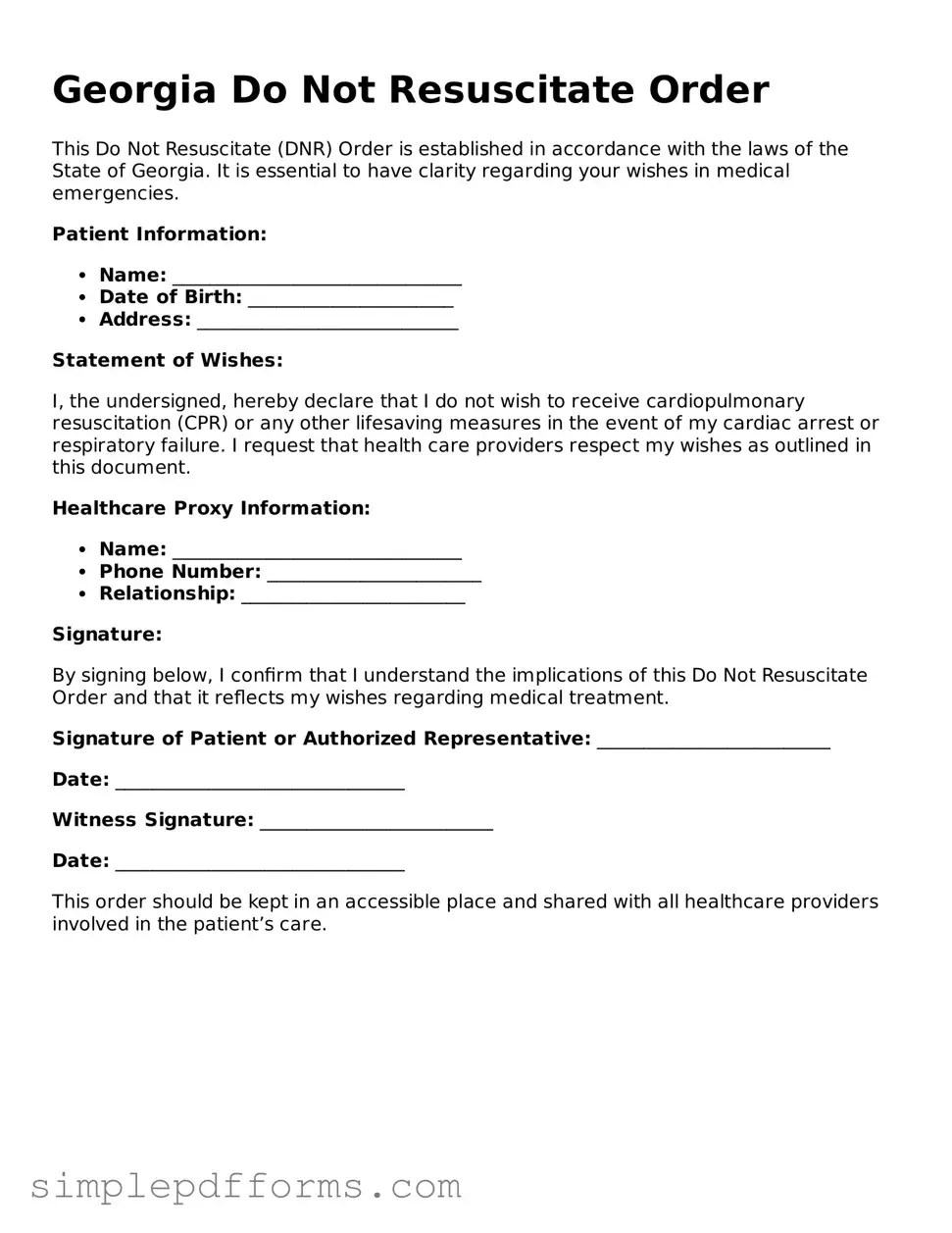Attorney-Verified Do Not Resuscitate Order Document for Georgia State
A Georgia Do Not Resuscitate Order (DNR) form is a legal document that allows individuals to refuse resuscitation efforts in the event of a medical emergency. This form ensures that healthcare providers respect a patient’s wishes regarding end-of-life care. Understanding its implications is crucial for both patients and their families in making informed decisions about medical treatment.
Open Do Not Resuscitate Order Editor Now

Attorney-Verified Do Not Resuscitate Order Document for Georgia State
Open Do Not Resuscitate Order Editor Now

Open Do Not Resuscitate Order Editor Now
or
Get Do Not Resuscitate Order PDF Form
Your form is waiting for completion
Complete Do Not Resuscitate Order online in minutes with ease.